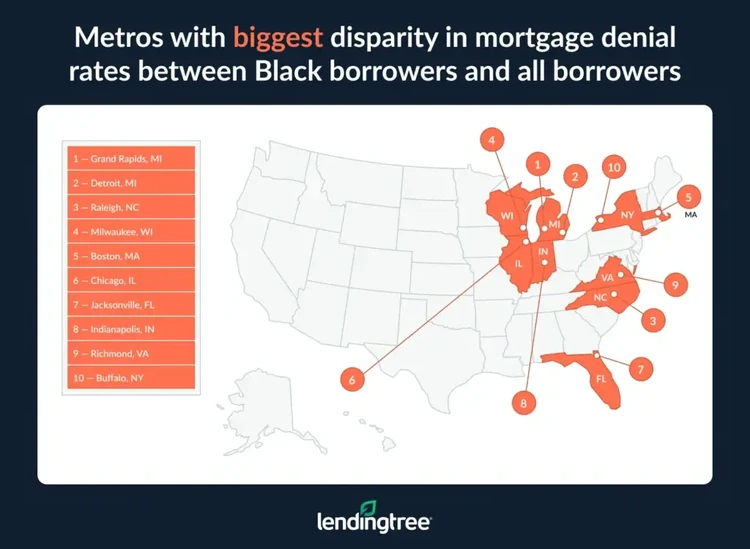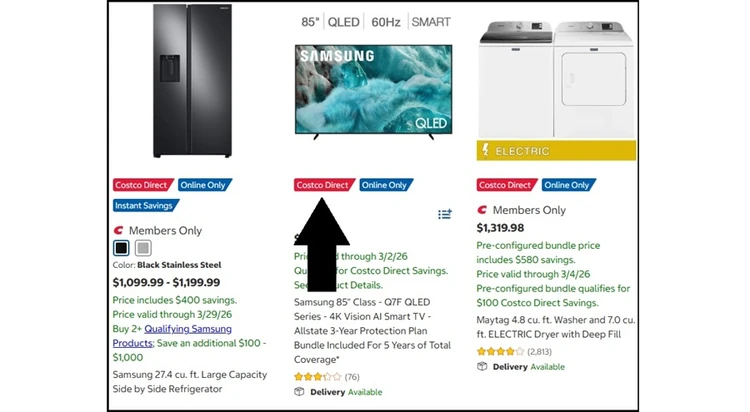Denial rates vary widely, with two Michigan metros having the highest denial rates
After decades of attempts to level the housing playing field, Black Americans still face a harder path to home ownership than whites, with Black applicants being 1.7 times more likely to be turned down.
Detroit and Grand Rapids, Mich., had the highest denial rates in the nationwide survey conducted for LendingTree.
High mortgage denial rates along with limited generational wealth, income disparities and discriminatory practices are amongthe persistent challenges that keep the Black home ownership rate lower than that of other racial groups.
But these disparities arent uniform. Denial rates and the gaps between Black and overall applicants vary widely across the country.
LendingTree chief consumer finance analyst Matt Schulz says a higher denial rate for Black consumers means limited access to thebenefits of owning a home.
For generations, homeownership has been one of the most powerful tools for building wealth that Americans have. Home ownership isnt cheap, and there are ongoing costs; however, the equity that you can build over the years can be incredibly helpful. Not only can it provide you funding when youre in a financial pinch, but it can also be used in working toward other financial goals, Schulz says.

Key findings
- Black homebuyers are 1.7 times more likely to be denied a mortgage than all homebuyers.The denial rate for Black applicants across the U.S. was 19.00% in 2024, compared with 11.27% for all applicants a gap of 7.73 percentage points.
- Grand Rapids, Mich., Detroit, and Raleigh, N.C.,have the widest denial rate gaps among the 50 largest metros.In the two Michigan metros, Black borrowers experience denial rates exceeding 20.00% 9.75 and 8.54 points higher than each metros rate among all homeowners. In Raleigh, N.C., the gap is 8.44 points.
- Salt Lake Citys Black denial rate is only 0.24 points higher than its overall rate.San Antonio (1.54 points) and Fresno, Calif. (2.02 points), are the next closest. Three metros each in California and Texas rank among the bottom 10 for the lowest gaps.
- Black homebuyer denial rates are highest in Grand Rapids, Detroit and Miami, and lowest in Salt Lake City, SeattleandPortland, Ore.Although denial rates can vary across the 50 metros, they exceed 10.00% everywhere but Salt Lake City, at 8.94%.
- Debt-to-income (DTI) ratio is the leading reason for mortgage denials for Black or all borrowers, but credit history is a prominent obstacle for Black applicants.In 2024, DTI ratios accounted for 34.02% of all denials, compared with 34.08% among Black applicants. However, credit history was the main reason in 24.85% of all denials, compared with 33.16% among Black borrowers, an 8.31-point gap.
Black homebuyer denial rate is 19.00% nationally
Black mortgage applicants are 1.7 times more likely to be denied a home loan than all homebuyers. In 2024, the mortgage denial rate for Black Americans was 19.00%, 7.73 percentage points higher than the denial rate for all applicants, 11.27%.
In what is perhaps a sign of progress, the denial rate disparity between Black and all mortgage applicants in the 50 largest metros decreased from 5.30 percentage points in 2022 to 4.80 percentage points in 2024.
Mortgage denial rates across 50 largest metros: All buyers vs. Black buyers
| Year | Denial rate, all borrowers | Denial rate, Black borrowers | Spread |
|---|---|---|---|
| 2024 | 9.47% | 14.27% | 4.80 |
| 2022 | 9.14% | 14.44% | 5.30 |
Source: LendingTree analysis of 2024 Home Mortgage Disclosure Act (HMDA) data.
While the difference in denial rates between Black homebuyers and all buyers has narrowed slightly, the home ownership gap remains wide. The national home ownership rate in 2023 was 65.2%, yet it was 44.7% among Black consumers significantly lower than the rate among white (72.4%), Asian (63.4%) and Hispanic (51.0%) households.
Homeownership rate grows, but so does gap
Thehome ownership rate among U.S. Black householdshas increased over the past decade, as it has for all racial groups. In fact, between 2022 and 2023, the homeownership rate among Black households saw a significant gain. Despite the increase, data shows that the gap between Black and white homeownership rates has grown over the past 10 years, from 27% in 2013 to 28% in 2023.
Posted: 2025-07-09 17:39:34


















